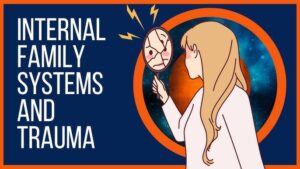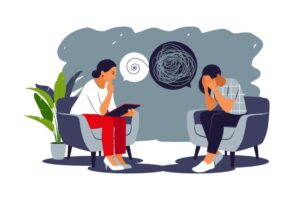While the coming-of-age society is slowly shifting towards a more holistic lifestyle with a mindset of ‘inner health’ over ‘outer looks’, there persist still countless cases where children, teenagers and people from all ages go through a constant fight with something as common as food. Such unhealthy thought-processes may lead to maladaptive behaviours resulting in eating disorders. Eating disorder treatment in India is available to the public at various institutions, hospitals, and centres and early detection can help treat the disorder more effectively.
Types of Eating Disorders
- ANOREXIA NERVOSA
People with Anorexia Nervosa experience symptoms that involve avoiding food to maintain as less as weight as possible. Symptoms of Anorexia include
- persistent refusal of food
- excessive fear of weight gain
- refusal to maintain minimally normal body weight
- disturbed perception of body image
- amenorrhea (absence of at least three menstrual periods) in girls.
People go to such lengths where they compare their body parts such as their hands and legs to tiny inanimate objects such as coins, and aspire to become as small and thin. They always tend to be counting calories and living in deficit/ self-imposed extreme dietary restrictions even if they have dangerously low weight. In extreme cases, death due to starvation has been noted.
- BULIMIA NERVOSA
Another very closely related eating disorder is Bulimia Nervosa. Symptoms involve
- recurrent episodes of uncontrolled consumption of abnormally large quantities of food
- Followed by removal of the consumed food through self-induced vomiting, purging, and misuse of laxatives, fasting, and excessive exercise.
Feelings of guilt and fear of judgement are closely associated with the amount of food consumed. There is a constant fight between the ‘wish’ to eat vs the ‘guilt’ of eating. This leads them to indulge in behaviours that they think would compensate the quantity ingested.
BINGE-EATING DISODER
While it’s common to binge on snacks or food during holiday season or when there’s a day off, Binge-eating disorder is characterized by eating enormous amounts of food for a long period of time. What makes Binge-Eating Disorder a disorder is the duration and the increasing amounts of food-intake on a daily basis. Research shows that people with this disorder might be following a very strict dietary regime; however, once they are unable to follow through those restrictions, they tend to binge on whatever they lay their hands on. This paves the way for other complications such as
- obesity
- cholesterol
- blood pressure
- feelings of guilt, shame, and self-hatred.
What are the causes of developing eating disorders?
Considering the tumultuous history and socio-demographic diversity of thought, accessing eating disorder treatment in India is fairly uncommon due to the lack of exposure to the causes and occurrence of the same. There are various reasons why eating disorders might develop in certain individuals. While some of them may be related to genetics, environment that can be identified easily, eating disorders may also crop up due to underlying causes which usually go unnoticed.
- Body image and self – confidence: has always been at the center of people’s judgement that significantly affects their self – esteem and confidence. Looking down upon the way we look can be a significant factor of low self-confidence and feelings of shame and embarrassment towards the way we look.
- Developing a bad relationship with food since childhood: Sustaining such an unhealthy relationship with food since childhood can be the cause of problems emerging in teenage years. Parents are advised to help their child develop a good relationship with all kinds of food, and not have any negativity towards food that increase calories or contain sugar.
- Unhealthy beauty standards in society: Being ‘thin’ is very commonly misunderstood as being ‘healthy’. Social media has played a big role in setting absurd beauty standards for young kids and teenagers, influencing them into look down upon their natural body types while seeking gratification revolving around weight, appearance, and shape.
- Gender differences: Studies indicate that teenage girls and woman tend to go through eating disorders in more frequency than men, which can be attributed to rigid beauty standards set by the society throughout history for women. However, boys and males are also diagnosed with disorders such as binge-eating and bulimia.
Why should one seek treatment for eating disorders?
While it’s easy to underestimate the adverse effects of something as common as eating food, it is important to note that eating disorders not only affect the physical health of a person but also deteriorate the mental well-being of the person going through it. Treatment is highly necessary for eating disorders.
People with eating disorders go through various challenges in their daily life, which makes eating disorder treatment in India highly essential.
- Experiencing negative emotions: Living in constant guilt, fear, and restrictions with something as basic as food, that we contact every day, causes exhaustion, pain, and fatigue every day.
- Precursor to multiple related disorders: Those negative emotions can in turn be the source of other disorders such as anxiety, depression and stress-related issues that hamper well-being.
- Prevention from an early age: It is therefore advised to new parents to develop healthy eating habits and a good relationship with food in their toddlers, so that future eating disorders can be prevented.
Is treatment available in India?
Professional help in treating eating disorders, especially in India is available and can be accessed. A few ways to avail eating disorder treatment in India
include –
- Contacting hospitals – getting in touch with psychologists can help diagnose any maladaptive behaviour at the earlier stages before it becomes more difficult to treat. Psychiatrists and health care professionals work in tandem and may use techniques like Medical Nutrition Therapy to help treat eating disorders.
- Visiting counseling centres – the use of counseling and various therapies such as Cognitive behavioural therapy (CBT), dialectical behaviour therapy (DBT), Interpersonal Psychotherapy, etc have proven to effectively treat eating disorders.
Do psychologists have a role in treating eating disorders?
Yes! Psychologists play a major role in eating disorder treatment in India because the root of all problems starts at a mental level.
- Preventing future cases: Psychologists can help prevent future cases through family counselling by reframing concepts of self-acceptance, body image, and developing a healthy relationship with food while maintaining balanced nutritional levels.
- Rewiring the brain: They can also help treat eating disorders through psychotherapy, counseling and rewiring the maladaptive thinking revolving around food and body-image.
Why CoachForMind?
- Experienced Psychologists: We are a team of licensed RCI-registered clinical psychologists. Our team has the best practices involved in Eating Disorder treatment in India.
- Personalized Approach: We are dedicated to treating our clients with the best suited way, carefully curated as per the needs of the client adhering to one-on-one, client-centred therapy.
- Scientific Techniques: Our treatment plans and therapeutic methods are based on highly researched, scientific findings such as CBT and DBT. These therapies are used in rewiring the brain into shifting from maladaptive eating behaviour to healthy ways of coping.
- Quality service: We at CoachForMind ensure quality services in our treatment regime and therapeutic approaches. Our clients hold most value to us, so we ground our techniques in empathy while maintaining professionalism.
For more information, please visit our website or contact us directly at coachformind@gmail.com




